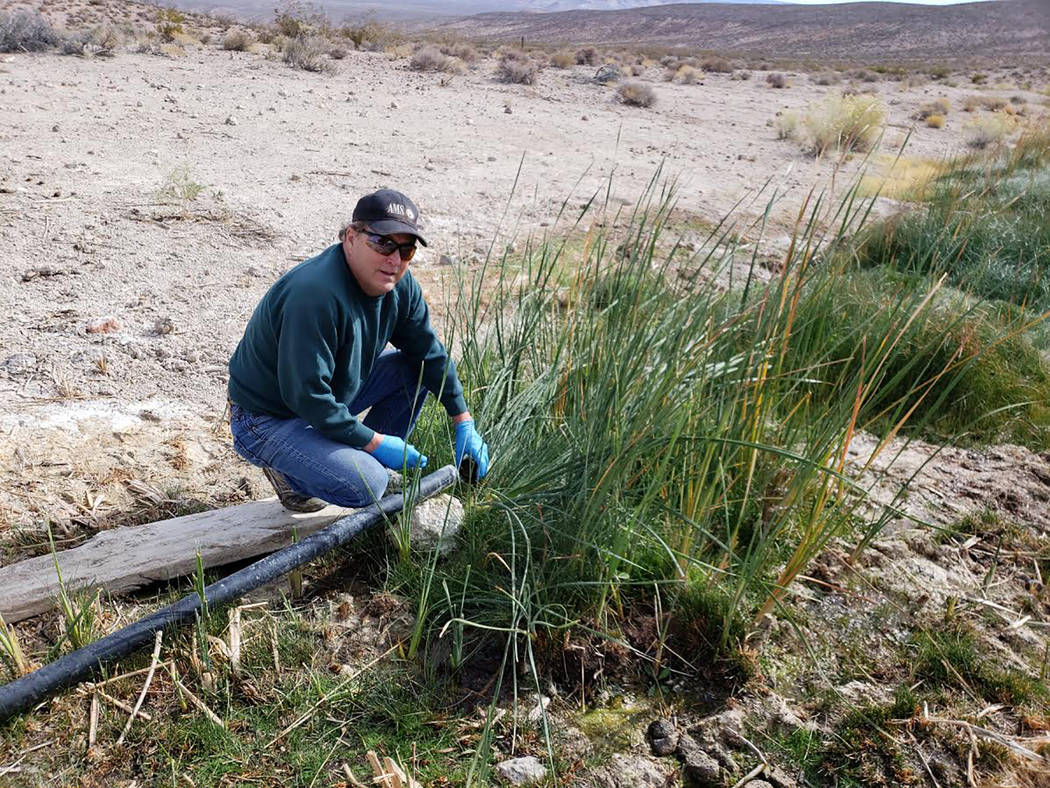
Starting in 1951, the Nevada National Security Site, then known as the Nevada Test Site, became a nuclear testing ground in America, with both atmospheric and underground detonations taking place over a period of several decades.
While those experiments are no longer carried out, the impact of their history is still a subject of keen interest. As Nevada is the driest state in the nation, many place particular focus on the effect the nuclear weapons testing had on one essential component of life, the water supply.
With concerns regarding potential groundwater contamination ever-present in the minds of many Nevadans, continuous monitoring of the situation is key. Several separate entities have taken on this task, one of which is Nye County.
In 2015, the county received more than a million dollars in grant funding to start the Nye County Tritium Sampling and Monitoring Program.
For the last four years, Nye County’s tritium sampling program has yielded favorable results, with levels of the radioactive isotope remaining undetectable in the water down-gradient of the Nevada National Security Site.
Tritium is a radioactive form of hydrogen and sampling for this specific particle is done because tritium is one of the most abundant radionuclides generated by underground nuclear testing. In addition, it is also very mobile, making it something of an early warning system for the possible movement of other, more dangerous radioactive chemicals.
“The tritium sampling work is being done under the Nuclear Waste Repository Project Office and is funded through a seven-year grant from the Department of Energy Environmental Management office. The grant, which was recently extended from five to seven years, provides funding to perform annual, independent sampling for tritium at locations down-gradient of the Nevada National Security Site,” Nye County Nuclear Waste Repository Office Geoscientist John Klenke explained.
He detailed that Nye County sampled 20 separate locations, including 17 wells and three springs, between Oct. 15 and Dec. 3, 2018. Of these, 10 of the sites are sampled every year while the other 10 locations change on an annual basis. For the 2018 sampling, sites included those in the vicinity of Beatty, Amargosa and Crystal.
“New for 2018 was the addition of sampling in private domestic wells to increase the spatial distribution of sampling sites with community involvement,” Klenke stated. “Four duplicate samples and three blank ones were also taken to meet quality assurance requirements. Sample locations were selected based on groundwater flow paths off of the NNSS, proximity of wells to down-gradient communities and recommendations provided by community environmental monitors and Nye County citizens.”
Klenke explained that the Community Environmental Monitors Program utilizes trained local citizens to manage monitoring stations located in communities surrounding the Nevada National Security Site and under this program, air sampling, as well as limited tritium sampling, is performed. “Additionally, Nye County does corroborative sampling with the Desert Research Institute on one well each year to verify test results and collect additional samples for other types of analysis,” Klenke said.
The grant that funds the tritium sampling program also extends to work performed by Nye County in support of the Department of Energy’s Underground Test Area preemptive reviews. Klenke reported that hydrologist Jamie Walker has been engaged since 2017 in the preemptive review focusing on the Yucca Flat hydrologic model, as an ex-officio representative of Nye County.
“These technical reviews are used to address the current state of knowledge as well as strategies used to define the locations and movement of contaminated groundwater on the Nevada National Security Site,” Klenke explained, adding, “The preemptive review work has helped to progress the Yucca Flat Climax Mine Corrective Action Unit through the model evaluation phase toward a recommendation to move the corrective action unit to closure and monitoring.”
For more information contact the Nye County Nuclear Waste and Repository Office at 775-727-7727.
Contact reporter Robin Hebrock at rhebrock@pvtimes.com